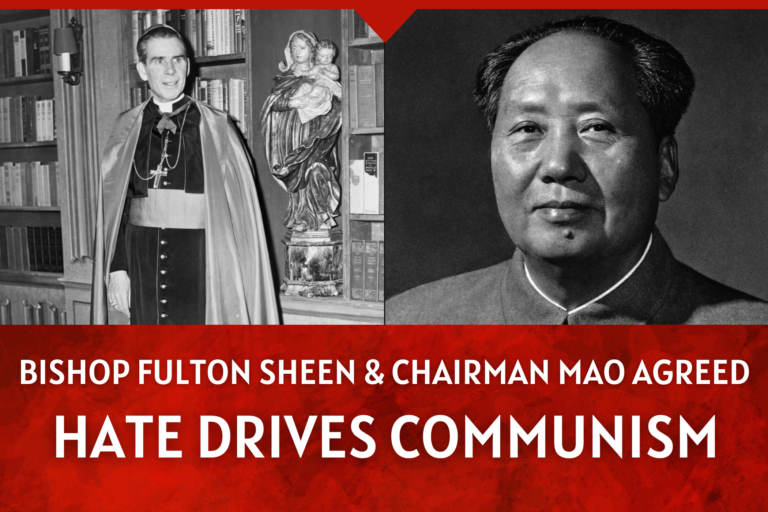Obviously the antinomy between labor and capital under consideration here — the antinomy in which labor was separated from capital and set up in opposition to it…did not originate merely in the philosophy and economic theories of the 18th century; rather it originated in the whole of the economic and social practice of that time, the time of the birth and rapid development of industrialization, in which what was mainly seen was the possibility of vastly increasing material wealth, as means, while the end, that is to say man, who should be served by the means, was ignored. It was this practical error that struck the blow first and foremost against human labor, against the working man. .… The same error, which is now part of history and which was connected with the period of primitive capitalism and liberalism, can nevertheless be repeated in other circumstances of time and place if people‘s thinking starts from the same theoretical or practical premises (Sec. 13).
It is obvious that when we speak of opposition between labor and capital, we are not dealing only with abstract concepts or “impersonal forces” operating in economic production. Behind both concepts there are people, living, actual people: On the one side are those who do the work without being the owners of the means of production, and on the other side those who act as entrepreneurs and who own these means or represent the owners. Thus the issue of ownership or property enters from the beginning into the whole of this difficult process. The encyclical Rerum Novarum which has the social question as its theme, stresses this issue also, recalling and confirming the church’s teaching on ownership, on the right to private property even when it is a question of the means of production (Sec. 14).
The above principle, as it was then stated and as it is still taught by the church, diverges radically from the program of collectivism as proclaimed by Marxism and put into practice in various countries .… At the same time it differs from the program of capitalism practiced by liberalism and by the political systems inspired by it.
In the latter case, the difference consists in the way the right to ownership or property is understood. Christian tradition has never upheld the right as absolute and untouchable. On the contrary, it has always understood this right within the broader context of the right common to all to use the goods of the whole of creation: The right to private property is subordinated to the fact that goods are meant for everyone.
Furthermore, in the church’s teaching, ownership has never been understood in a way that could constitute grounds for social conflict in labor .… property is acquired first of all through work in order that it may serve work. This concerns in a special way ownership of the means of production. Isolating these means as a separate property in order to set it up in the form of “capital” in opposition to “labor”…is contrary to the very nature of these means and their possession. They cannot be possessed against labor…because the only legitimate title to their possession…is that they should serve labor and thus by serving labor that they should make possible the achievement of the first principle of this order, namely the universal destination of goods and the right to common use of them. From this point of view, therefore, in consideration of human labor and of common access to the goods meant for man, one cannot exclude the socialization, in suitable conditions, of certain means of production .…
From this point of view the position of “rigid” capitalism continues to remain unacceptable, namely the position that defends the exclusive right to private ownership of the means of production as an untouchable “dogma” of economic life .… If it is true that capital, as the whole means of production, is at the same time the product of the work of generations, it is equally true that capital is being unceasingly created through the work done with the help of all these means of production, and these means can be seen as a great workbench at which the present generation is working day after day .… we are dealing here with different kinds of work, not only the so-called manual labor, but also the many forms of intellectual work…
(from Laborem Exercens, 14 Sept. 1982).










